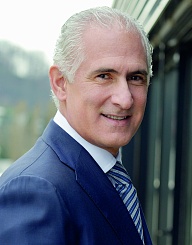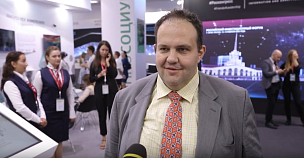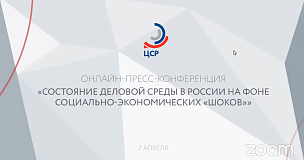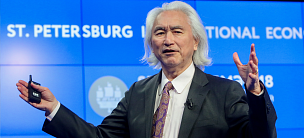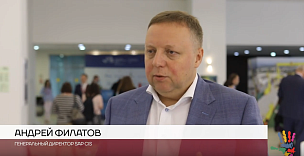There’s a concept of ‘Health is Wealth’ which illustrates an existing link between public health and economic situation. That seems logical as is, but can we prove it with some data?
The data is clear on this. Research covering 13 OECD (The Organisation for Economic Co-operation and Development) countries estimated that a 1% increase in life expectancy results in an average 6% increase in total GDP in the long run, and a 5% increase in GDP per capita.
The negative consequences of poor health on a country’s economy are also clear. Lung cancer, the leading type of cancer among Russian men, costs the country an estimated 0.2% of its gross national product.
So investments in improving health systems result in more productive communities and engaged workforces. To this end, we’ve seen that Russia has prioritized healthcare, along with education and infrastructural development — all are good investments.
The population is ageing globally, and this trend is stronger in developed countries. How does the modern biopharmaceutical industry respond to this challenge?
The global population is indeed ageing at an incredibly rapid rate. Only 30 years from now it is estimated that every 4th person in developed countries will be 60 years or older. By 2025, in Russia alone it is estimated that 40 million people will be aged 60+.
Ageing will have the most significant impact on healthcare in coming years and it is a challenge that all of us, not just the biopharmaceutical industry, but governments and other players, need to be better prepared for.
We’re in the business of inventing medicines and vaccines that save and improve lives. Our belief is therefore that medicines and vaccines have the potential to ensure that people not only live longer, but that they live more quality and productive lives.
The work that we are doing to develop innovative vaccines and treatments for illnesses such as cancer, diabetes, Alzheimer’s and chronic respiratory diseases is because we recognize that these medicines have the potential to help ageing populations — and populations overall.
Using medicines to better manage chronic conditions and prevent diseases helps avoid the costs of more expensive treatment and care in the future.
The President recently stated that disease prevention is the most important task. What can your company offer to the government in this area?
At MSD, we believe that vaccines are one of the greatest public health success stories in history, and we have played a significant part in that story.
As one of the global leaders in vaccines, we believe we can be a strong partner for the Russian government in its goals on prevention of infections and in areas where unmet needs still exist.
To give you a striking example, currently about 7000 Russian women die prematurely because of cervical cancer each year. We know that this disease in the majority of cases is caused by a persisting human papillomavirus (HPV). There’s worldwide evidence that HPV can be eliminated with the help of vaccination, just like smallpox and polio in the past.
In Australia, where vaccination against HPV is available for all girls since 2007 and all boys since 2013, the infection rates in young women have dropped from 22.7% to just over 1% between 2005 and 2015. Within the next generations, Australia may no longer have any reported cases of cervical cancer.
Russia is still in the early stages of adopting this technology, but we are committed to supporting this process, and the adoption of other vaccines such as the rotavirus vaccine — which has recently been prioritised for inclusion into the national immunization program in the next 2–3 years.
Your company invests billions of dollars in research and development. Can you exemplify the outcome of this work with interesting and unique discoveries?
Last year, our company spent close to 10 billion dollars on research and development. We’ve never wavered in our commitment to R&D to tackle the greatest health challenges.
In oncology, we’ve learnt how to harness the natural ability of the immune system to selectively attack and kill cancer cells. The medicine is now helping Russian patients with late stage melanoma and lung cancer.
In hepatitis C, which is the leading cause of liver transplants and the increase in liver cancer incidence, we are launching a medicine in Russia that may cure infection in over 99% of patients with only 12 weeks of treatment.
Invention is only part of the story. If a medicine doesn’t reach a patient, it doesn’t work. So we are working with partners around the world to create programs that facilitate broader access to the benefits of innovative medicines.
Do you think a universal pill against cancer can be invented? Can you suggest when?
The progress already being made in cancer is remarkable. With advancement of science and technology, with better understanding of the biology of disease, we will make even more. Will it be a universal, magic pill? That remains unlikely, because we know that there are so many different types of cancer, with even more different causes. That’s why one of the most exciting areas today is personalized medicine, which tailors treatment to the individual characteristics of a patient.
Chemotherapy still is the standard of care for many cancers. But newer treatments, like immune therapy, focus on highly specific drug targets, and many rely on companion diagnostics which helps select patients who will mostly benefit from this treatment.
This target may be common for many tumor types, but not for all. As researchers generate and analyse increasingly large volumes of data from clinical studies, we are getting better positioned to identify and develop new drug targets to address individual needs of patients.
We have seen examples in the past — such as with HIV — where diseases that were once deadly have been transformed into chronic illnesses.
Today, doctors know how to cope with diseases that have been incurable in the past. But as we know, there are new challenges rising. What disease will threaten humanity in the future?
One of the biggest growing healthcare challenges is antimicrobial resistance.
It is projected that by 2050 superbugs will cause more deaths than those caused by cancer today. The economic impact will also be unprecedented, with the cumulative loss in GDP projected to reach 100 trillion dollars.
On one the hand, antibiotics have saved millions of lives and are cited as a central factor in the rise of global life expectancy. But on the other hand, those gains are now being jeopardized because of misuse and overuse of antibiotics.
Also, as it is a very complicated area for innovation, there are only a handful of companies still focusing on antibiotic research. We just can’t keep pace: bacteria need 20 mins to change generation and it takes 10 years for a new drug to be launched.
Because of the seriousness of this threat, we appreciate Russia taking a bold step in 2017 to address this challenge with a specific strategy. MSD is a committed partner in this process globally. In 2016, we joined the Davos Declaration on antimicrobial resistance. In Russia, we specifically focus our activity to preserve current therapeutic options through stewardship.
What are your strategic priorities and plans in Russia?
After 27 years of operation in Russia, our priority continues to be people’s health, and our strategy is guided by the priorities of the government — oncology, disease prevention, maternal and child health, medical education, and technology transfer.
Russia is an important country for MSD. And for me SPIEF is a unique opportunity to meet our federal and regional stakeholders and reinforce our own commitment to partnering in Russia. Here we can hear specific requests we can address or even adjust our strategy for the next year.
I wish all the participants a fantastic and fruitful forum.
Source: SPIEF-2018 Official Magazine


